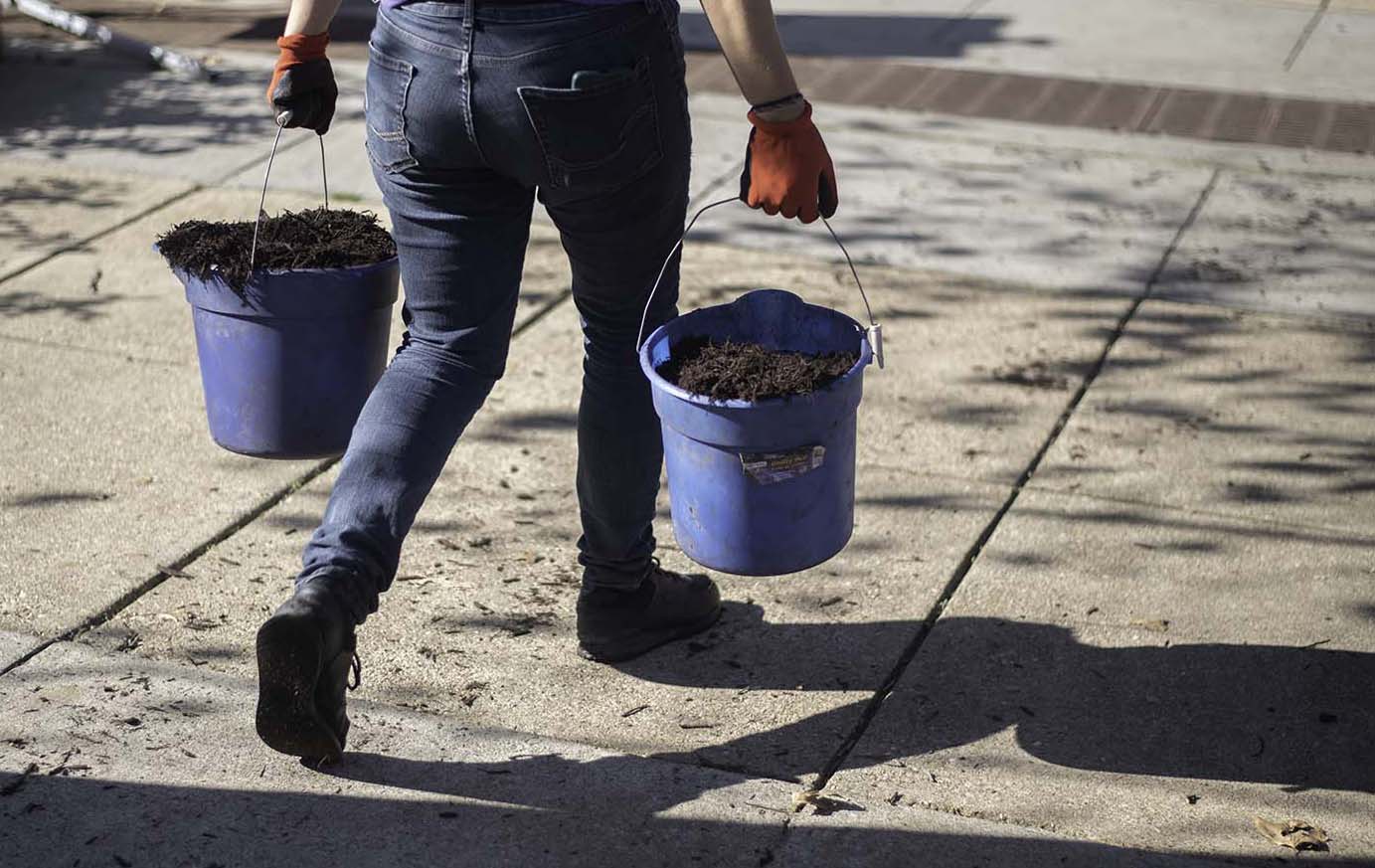Views expressed in opinion columns are the author’s own.
As spring break approaches next month, my social media feed prepares itself for the influx of students posing in a developing country with an child held at their hip and a caption that says: “An experience of a lifetime #dogood.”
The life experiences of the people in these countries should not be presented as a “once in a lifetime” opportunity. While a volunteer may have had a life changing experience, the child continues to suffer from a system not providing basic resources for them. Every year, student organizations attend mission style trips and every year, I grow more uncomfortable with the idea of how colonialism adapts overtime.
While mission trips intend to help people in need — much like volunteer abroad programs do — they are reminiscent of colonization’s “white savior mentality.”
The concept of mission trips should sound vaguely familiar. The process of white people entering a country to “save” another community and forcing their beliefs, values or religion is similar to Christian boarding schools in the United States, Australia and Canada. While white colonists physically claimed Indigenous land, they also systematically destroyed Indigenous culture by forcing Indigenous children to not speak their native language or participate in ceremonies or cultural activities, while separating them from their family and community. These combined resulted in some of the most intense assimilation in American history — the loss of language, culture and history for Indigenous people. With the colonial mindset of the “white man’s burden,” the so-called “white saviors” claimed they were saving Indigenous people from their barbaric and primitive cultures.
The term “white savior” in a modern day context refers to any person or group, regardless of race, possessing an imbalance of power or privilege. This concept takes form through the White Savior Industrial Complex, coined by Teju Cole in 2012. Cole summarizes it simply: “The white savior supports brutal policies in the morning, funds charities in the afternoon, and receives awards in the evening.”
Rather than championing transformative justice, the White Savior Industrial Complex revolves around having an emotional experience that validates privilege, proving someone isn’t racist, boosting their own ego or “saving” a community from their own circumstance.
There is little opposition to the idea of the care some mission trips provide. However, this intention alone is not enough. If people aim to help communities — and in the process, interfere with their lives — awareness of the necessary institutional and structural change within the policies and governments must be considered and worked on as well.
For example, opportunities for foreign volunteers to care for children living in poverty has resulted in the increased demand for children to be in orphanages. This puts families in an uncomfortable position to choose between money or children, resulting in family separation and trauma for the children.
The trauma of separation and intense feelings of grief for children is yet again repeated when the mission trip ends and a new turnover of volunteers arrive. This change of caretakers can cause attachment harm to a child’s psychological development.
This does not just affect the children of these communities. Mission trips and their work also put community members out of jobs. For example, a research study of mission trips in Honduras revealed that the local Hondurans believed the work done by mission trips could have been done by Hondurans who desperately needed employment. While mission trips have intentions to help the community, they can end up hurting them and their opportunities.
Additionally, mission trips reinforce stereotypes of the developing world as incapable and inferior. This incapability and inferiority is presented when volunteers are allowed to take pictures of the communities they work with and post them. Nurses in the United States are not allowed to take photos of their patients, detail how tragic life is, and post it on social media. The developing world is not an opportunity for those with privilege to learn and gain “real life experience.”
About 10 million people volunteered abroad in 2019. Ten million people entered a country in desperate need of structural changes. Ten million people who contributed to turning poverty into a tourist attraction, put local people out of jobs, reinforced belittling stereotypes of the developing world and harmed child psychological development.
Participating in a system that perpetuates and reestablishes colonialism is not one that should be promoted so highly to students. Mission trips, in all of its various forms, do less to help global marginalized communities and do more to reestablish colonization in a modern setting. A newly built school or spending two weeks with children living in poverty and snapping a picture to prove your humility does not do enough to save a failing government. A new school does not promise high quality teachers or a high attendance of inclusive students. Along with true intentions, it’s action, resources and platforms that are necessary to truly uplift these communities.
Lei Danielle Escobal is a sophomore American studies and sociology major. She can be reached at leidanie@terpmail.umd.edu.



